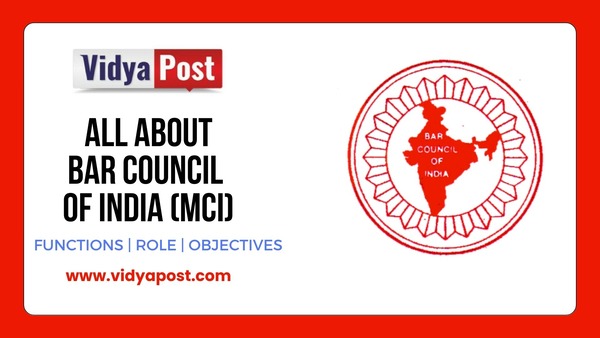All About MCI

The Medical Council of India (MCI) is a statutory organization charged with creating and maintaining high standards of medical education and medical qualification recognition in India. Learn about the Council, its officers, organizational chart, acts, rules, and modifications, among other things. Users can find information on colleges, courses, medical seats, internship hospitals, horsemanship hospitals, faculties, and so on by the state.
According to NITI Aayog's proposal, the government initiated steps in 2019 to replace MCI with the National Medical Commission (NMC). The MCI is also in charge of medical practice regulation, including the registration of doctors in an All India Medical Register. States have legislation that creates a state medical council to oversee ethical and professional wrongdoing by medical practitioners.
Also, Read How to establish private university in India
History
The Indian Medical Council (IMC) Act of 1933 founded the Medical Council of India (MCI) in 1934. Its principal aim at the time was to standardize both medical training and the accreditation of medical and surgical proficiency. The original IMC Act was abolished and revised in 1956. It has since been updated with modifications enacted in 1964, 1993, and 2001.
Regarding the MCI's regulatory role, organizational structure, charges of corruption, and lack of accountability, there have been several problems with how it has operated over the years. The National Knowledge Commission and the Yashpal Committee advocated separating the regulation of medical practice and education in 2009. According to the recommendation, the MCI should not be in charge of overseeing medical education and should instead serve as a professional organization that administers entrance exams for the medical field.
To improve the way the MCI operates, legislative amendments have been proposed by the Parliamentary Standing Committee (2016), expert committees led by Prof. Ranjit Roy Choudhary (2016), and the NITI Aayog (2016). The NITI Aayog advised making modifications to the MCI's membership and establishing some independent Boards to handle various tasks, including medical education and licensing exams, medical ethics and practice, and the accreditation of medical colleges.
On December 29, 2017, the National Medical Commission Bill, 2017 was presented to the Lok Sabha. The Standing Committee on Health and Family Welfare looked into it before submitting a report on March 20, 2018. The National Medical Commission's composition, fee regulation for at least 50% of seats in private medical colleges, and integration of the licentiate test with the final year MBBS examination were among the recommendations made by the Committee. The 2017 Bill, however, became inoperative when the 16th Lok Sabha was dissolved. On July 22, 2019, the National Medical Commission Bill, 2019 was introduced in the Lok Sabha. The Indian Medical Council Act of 1956 is repealed under the bill.
Role of MCI
-
Upholding universal standards for medical education at all levels, including postgraduate.
-
Recommendations for the recognition or derecognition of medical degrees from Indian or international medical institutes.
-
Doctors with recognized medical degrees may register permanently or provisionally.
-
Mutual recognition of medical credentials between the United States and other nations.
-
Controlling the behavior of physicians registered under the 1956 Indian Medical Council Act.
Functions of the Medical Council of India
-
Establish and uphold standardized standards for medical education at the undergraduate level.
-
Impose rules on postgraduate medical education at medical schools it has approved. (Another statutory authority for postgraduate medical education in India is the National Board of Examinations.)
-
Medical degrees given by universities or the UGC are recognized in Indian medical facilities.
-
India recognized medical degrees earned abroad.
-
certification of medical schools.
-
Doctors with valid medical licenses are registered. A list of physicians was kept by the state medical councils and sent quarterly to the national MCI. Medical graduates from abroad could register right away.
-
keep a list of all licensed physicians (called the Indian Medical Register).
-
As needed, change the law controlling medical practices and education.
Conclusion
Building a modern healthcare accreditation system is essential for any modernizing economy's future. This is especially important in light of India's expanding population and the existing high level of corruption at the Medical Council of India. When a nation's medical accreditation system prioritizes research, it ensures that the next generation of doctors will be able to push the boundaries of medical research. The National Medical Commission Bill brings about the Indian accreditation system's much-required change.
Also, Read Best rated course you can pursue after 10th
Share:

2 Comments
Jordan Singer
2d2 replies
Santiago Roberts
4d